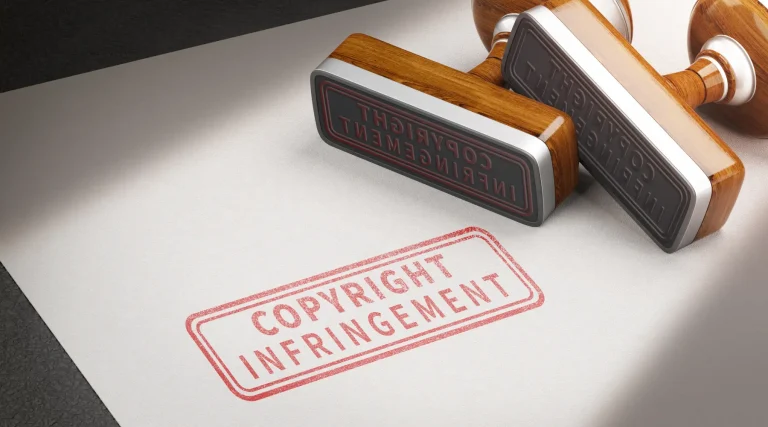Outsource2Us has identified the areas that a good marketing manager will need to be aware of and competent in
Marketing managers should be responsible for designing and implementing a business’s marketing effort. A marketing manager makes sure the message being communicated to the mark is representative of the goals and brand of the business. They deliver content that is designed to be attractive to target audiences and new customers while staying in line with existing consumer expectations and retaining their patronage. It can be a big job and one that places a lot of pressure on a single set of shoulders.
If that sounds like a broad job description, it is. A marketing manager’s workload will vary depending on the needs and marketing strategy of the business they represent. While there is variation, the marketing team from Outsource2Us has identified the areas that a good marketing manager will need to be aware of and competent in:
Copywriting
Copywriting covers a range of platforms and audiences. To craft materials that reflect a business’s messaging, branding, and strategy a marketing manager must write clearly, concisely, and effectively in a variety of contexts. Below are some examples of the materials marketing managers need to be comfortable producing.
Website content
In modern times, a company’s website is not just their best salesman, but also their signage and voice. As such, the content of your website needs to reflect your values and services in a clear, concise way. In an age where 76% of consumers research companies before visiting, can you afford typos or, far, far worse, boring content on your homepage? Professional copywriting services are necessary for the success of any website.
Blog copywriting
Blogs are a great way to give your website a voice and connect with your customers on a personal level. If there are regular questions or pain points that are raised by your customers, you can address these in a friendly and helpful way. You can introduce yourself as an industry leader by commenting on relevant news or events and building your businesses (and employees) profile. There are many benefits to writing a blog, however, they need to match your marketing strategies goals and business values. As such, a marketing manager will be responsible for writing or editing any blog material that goes on the website.
SEO Articles
Search engine algorithms can be fickle and difficult to understand. Depending on the engine and version, they often prioritise different parts of websites. This means that even if your blogs aren’t getting the attention they deserve, they can still serve a valuable purpose. A marketing manager must be confident in using your website as a vehicle for organic SEO. This means balancing the use of keywords with quality, well-researched content that algorithms will pick up and recommend to potential customers.
Producing Case Studies & Testimonials
A good marketing manager will make your past successes work for you. Case studies are a great way to demonstrate the ways your business can help customers, and testimonials can give customers the confidence to try out your brand. To be effective, case studies must be written professionally and include relevant statistics. Testimonials need to be genuine, and tastefully displayed. A marketing manager will procure and publicise your best work in the right way.
Emails Campaigns
We’ve all received those torrents of marketing emails. To stand out in this flood of content, a marketing manager needs to be effective at generating quality content that stands out to their target audience. Content such as e-newsletters can be a good way to keep customers interested in your brand and aware of developments within your business and community. Further, email campaigns to convert warm leads into paying customers need to be careful in their approach and charming in their delivery.
Print collateral
Print collateral can come in a variety of forms, from brochures, folders and flyers to business cards and branded stationary. Even though the world is increasingly gravitating towards digital methods of content delivery, you can never underestimate the power of ‘leave behind material’ and the brand awareness and presence it can build. A marketing manager can provide guidance on how to balance your business’s physical and digital presence and generate material for both.
For more information on the benefits of professional copywriting, click here.
Social Media
Social media is more than just a great way to make your business stand out, in the current digital, highly competitive market it’s necessary to prevent businesses from falling behind. Social media allows you to share your successes, highlight important events and build a personal connection with consumers. A marketing manager needs to be able to create authentic and successful content and understand how to use, interpret, and explain the results. Below are some key areas in which a marketing manager can help your social media strategy:
Target audience analysis
How do you expect to see success on social media if you don’t know who you’re trying to connect with? The first and most important part of social media is identifying who your target audience is, and what they want from your business. A marketing manager will take steps to identify your ideal audience and implement a plan to appeal to them.
Trend tracking & predictions
A marketing manager must be able to alter and adapt their marketing strategy to stay up to date with current trends. A flexible strategy that allows for capitalisation of consumer interest and incorporates past success is essential for social media success, and something that a marketing manager will be able to put in place.
Content and scheduling
Creating content for social media is something of an art form. Aside from the obvious graphic design and photography elements, you need to master the ever-evolving language of emojis and adopt the right tone and vocabulary for the business you represent. Additionally, understanding and scheduling the right time to post content can be a difficult challenge and will be unique for each business’s demographic.
Digital Audits
A digital audit is a vital step in any social media strategy. A digital audit involves going through a social media account with a fine tooth comb, cataloguing what works and noting what doesn’t. It’s a necessary part of understanding your audience and harnessing the best media channel to reach them.
For more information on how you can maximise your social media presence, click here.
Event Management
A lesser-known aspect of a marketing manager’s portfolio is event management. A marketing manager can be involved in every aspect of your business event, from determining initial interest to generating attendance, creating content, capturing footage, and monitoring the attention the event generated. A marketing manager is equipped to deliver actionable data on the success or failure of your event.
For more information on how to run a successful corporate event, click here.
Advertising
Advertising is the practice of paying for your brand or message to be displayed in a public place. It’s the difference between posting something on your personal Facebook page (organic marketing) and paying for Facebook to promote content (advertising). Regardless of what medium a business chooses, someone needs to write, design, or develop material suitable for that site. The content for a paid ad on Facebook is very different from a sign on the side of the highway, and a marketing manager needs to be capable of producing either.
Google Ads
Google ads are a great way of getting your business’s name out there. While Google ads can be effective, they need to be written in a very specific format. You need to be able to get your message across while staying within the 90-character limit. Whether or not Google ads are the best way to go for your business, a marketing manager will be able to provide personalised guidance based on your situation.
For more information on how advertising can help your business, click here.
Graphic Design
Graphic designs are the best way to attract and hold the attention of potential customers. However, the most effective designs are the ones that truly reflect the brand and values of the business they represent:
Website design
Your website is an extension of your business. In a virtual world, it is the face of your business, and as such it is vital that it presents well. A marketing manager can help decide on design aspects such as the colour, content, font and images that go on our website.
Brand design
To be effective, your brand needs to be unified and memorable. A marketing manager can help with this by reviewing the effectiveness of your designs and making sure they are used uniformly and to their best effect across all your material.
Print collateral
As addressed above, print collateral can be an incredibly valuable tool for your business. Just as the copywriting needs to be concise and effective, your print collateral needs to be memorable and high quality.
Digital marketing campaigns
Without modern and aesthetic designs, a digital marketing campaign is practically doomed. On most platforms, a graphic is vital to grab the attention of your audience long enough to stop scrolling and engage with the copywriting. A marketing manager will put together appropriate designs and ideas and identify the perfect visual for each post.
For more information on how Graphic Design can help your business, click here.
Website Management
While it might seem simple, website management can be a difficult job and one that requires expertise and experience to get the most out of it.
Search Engine Optimisation (SEO)
Many elements contribute to a successful SEO campaign. For a website to be ranked highly by search engines, someone needs to regularly conduct site audits, competitor analysis, on-site optimisation, monitoring and reporting, keyword identification, content development and link building. Search engines generally reward well-made, well-written, well-researched and quick websites. A marketing manager will help ensure all these boxes are ticked and that the website is attractive to search engines.
Conclusion
Marketing managers oversee a wide range of multi-disciplinary work. It’s a job that requires experience and regular review to truly get the most out of the position. At the end of the day, a marketing manager is just that, a manager. It’s a complex role, they need to have a team that supports and enables them to operate at peak efficiency. It’s for this very reason that marketing agencies exist, to provide the skillset and input of multiple team members at a price that is reasonable and achievable for small businesses.
To see how a marketing agency can help your business, get in touch with our Brisbane-based team at Outsource2Us for a FREE consultation today. Contact us at info@outsourcetous.com.au | 07 3257 2027







